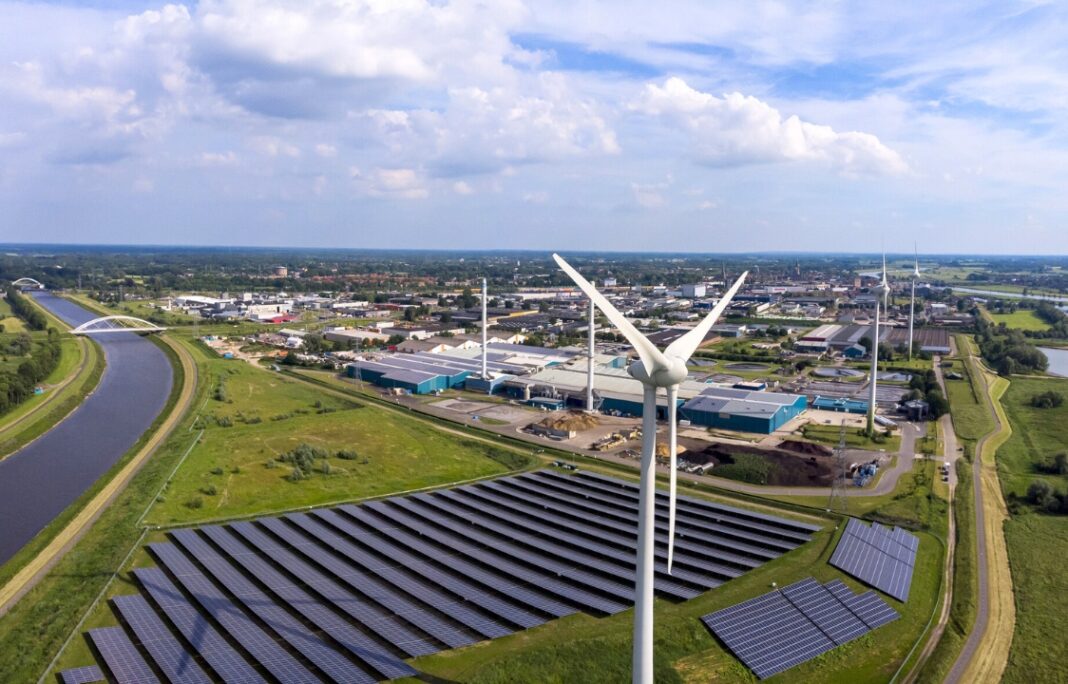The US Environmental Protection Agency (EPA) announced that it has allocated over $100M from President Biden’s Investing in America agenda to bolster recycling infrastructure and waste management systems.
This represents the largest EPA investment in recycling in three decades and aims to enhance sustainability, reduce environmental impact, create jobs, and promote a circular economy.
Michael S. Regan, EPA Administrator says, “President Biden’s Investing in America agenda tackles our most pressing environmental challenges including climate change and lead in drinking water, and today we add another historic investment to better manage waste in communities across America.”
“By investing in better recycling, EPA is deploying resources to provide recycling services across the country, including in disadvantaged communities, while preventing waste that contributes to the climate crisis, supporting local economies and creating good-paying jobs,” adds Regan.
Improving recycling and waste management in the US
The EPA has awarded over $73M in grants to 25 communities for recycling infrastructure, and an additional $32M to states and territories to enhance solid waste management planning and implementation.
These investments aim to improve recycling and waste management across the US, fostering sustainability and efficient resource use.
The EPA grants support the implementation of a “circular economy” as part of the National Recycling Strategy, aiming to keep materials, products, and services in use for longer, thus reducing waste and environmental impact.
Senator Tom Carper, Chairman of the Senate Environment and Public Works Committee says, “Recycling helps us protect our environment while creating jobs and promoting economic growth.”
“Thanks to the Bipartisan Infrastructure Law, this unprecedented investment will provide communities across our country with the opportunity to improve their recycling programmes and implement more sustainable waste-management practices.”
“I applaud EPA for the hard work in getting this funding out the door, and I look forward to working together to advance policies that strengthen our nation’s recycling infrastructure,” adds Senator Carper.
President Biden’s Investing in America agenda, a core element of his economic strategy (Bidenomics), aims to boost the American economy by developing infrastructure, attracting private sector investments, creating jobs that don’t require a four-year degree, and transitioning to a clean-energy economy that reduces energy costs, addresses climate change, and enhances community resilience.
The EPA’s Solid Waste Infrastructure for Recycling Grant Programme supports President Biden’s Justice40 Initiative, directing 40 per cent of federal investment benefits to disadvantaged communities. About $56M of the total $73M funding will go to projects benefiting these communities, emphasising a commitment to environmental justice and equity.
Recycling Grants for Communities and States & Territories
The recycling grants for communities, ranging from $500,000 to $4M each, will fund various projects such as expanding access to curbside recycling, reducing contamination in material recovery facilities, improving composting programmes, and constructing recycling and reuse facilities for materials like plastics and food waste.
These initiatives aim to enhance waste management and recycling infrastructure nationwide.
The recycling grants for states and territories, ranging from $360,000 to $750,000, will be distributed to all 56 areas. Priority will be given to those in greater need.
These grants align with the EPA’s EPA’s National Recycling Goal and Food Loss and Waste Reduction Goal, supporting activities like updating waste management plans and improving data collection for more effective recycling and waste reduction programs.
Recycling grants for Tribes and intertribal consortia
In the coming months, the EPA says it will announce recipients for recycling grants for Tribes and intertribal consortia, as well as for their new Recycling Education and Outreach grant programme. This underscores the EPA’s commitment to supporting recycling initiatives and promoting public awareness of waste management.
The Bipartisan Infrastructure Law allocates $275M for recycling grants over five years, marking the largest investment in recycling in 30 years. These grants, supplemented by EPA annual appropriations, support recycling infrastructure projects. The EPA has selected recipients for funding, pending legal and administrative requirements.






